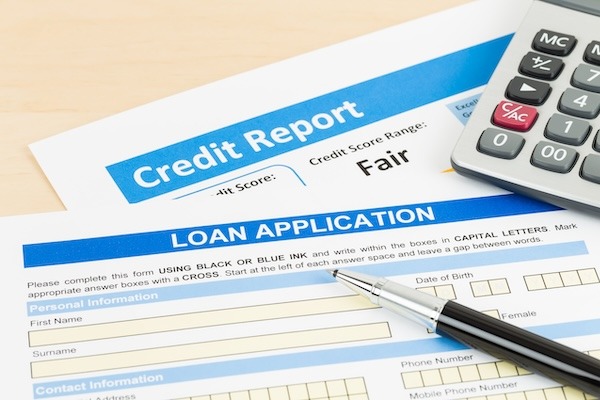Why Budgeting Isn't Working For You (And What To Do Instead)
Ever felt like your budget is a straitjacket rather than a helpful tool? You're not alone. A staggering 80% of people abandon their budgets within...
Whether you're covering unexpected expenses, making a big purchase, or just need extra cash, our personal loans offer simple, flexible funding tailored to your needs.
Simplify your finances with a loan that combines multiple payments into one. Our consolidation loans help reduce stress and keep your budget on track.
Upgrade your living space with financing designed for renovations, repairs, or remodeling. Our home improvement loans help you enhance your home’s comfort, value, and functionality—on your terms.
Explore expert insights, financial tips, and strategic guidance from the Symple Lending team. Our insights and resource articles are your go-to source for empowering content that helps you make informed decisions on your journey to financial freedom.
Stay up-to-date with the latest press releases, media features, and major announcements from Symple Lending. This section showcases how we're making headlines and driving innovation in the lending industry.
4 min read
 Breanne Neely
:
Updated on August 22, 2025
Breanne Neely
:
Updated on August 22, 2025

Did you know that a personal loan could either be your credit score's best friend or its worst enemy? It all depends on how you use it. While many borrowers fear the impact of taking on new debt, personal loans have helped millions of Americans improve their credit scores when managed properly.
The relationship between personal loans and credit scores isn't straightforward – it's a delicate balance of risks and opportunities. Understanding how these loans affect your creditworthiness can help you make an informed decision about whether borrowing could benefit your financial future.
Personal loans give you a fixed amount of money that you pay back in set monthly payments. Unlike car loans or mortgages, these unsecured loans don't need collateral - which means lenders look closely at your creditworthiness before approval.
You can keep track of changes to your credit score on your credit report. Your credit score changes in several ways when you take out a personal loan:
The loan application itself causes a hard credit check, which may drop your score by a few points. However, some companies, like Symple Lending, will conduct a soft credit check first, so you can review your personal loan options before committing to a hard credit pull that will impact your credit score.
Your payment history makes up 35% of your credit score. When you pay your personal loan on time each month, you create a record of reliable payments in your credit history that can boost your credit score over time.
Avoid missed payments by setting up automatic payments to maintain this positive track record.
Using a personal loan to pay off credit cards can improve your credit utilization ratio - the amount of available credit you're using. For example, if you move $10,000 in credit card debt to a personal loan, your credit card utilization drops to zero, which may increase your credit score.
Lowering your credit card balances with a personal loan will also help you maintain a healthy distance between what you owe on credit cards and your credit limit. Ideally, experts recommend using no more than 30% of your credit limit to maintain good credit.
Having different types of credit accounts listed on your credit report shows lenders you can handle various financial responsibilities. A personal loan adds an installment loan to your credit mix, which could improve your credit score if you previously only had credit cards or other revolving accounts.
When you apply for a personal loan, the lender does a hard credit check that typically reduces your credit score by 5-10 points. This drop usually lasts a few months.
Adding a new loan also brings down the average age of your credit accounts. Since credit scoring models give better marks for longer credit histories, this can cause a slight credit score decrease.
Late or missed payments have serious consequences - just one payment that's 30 days late can stay on your credit report for up to seven years and significantly lower your credit score. Personal loans can hurt credit when not managed responsibly.
Taking on additional debt increases your total debt load, which makes it harder to qualify for new credit. Lenders might see you as a higher risk if you're carrying multiple loans, especially if your debt-to-income ratio is high.
Before getting a personal loan, check your credit score - the higher your score, the lower interest rates and better terms you can qualify for. Your credit score also helps you understand which lenders might approve you.
Think carefully about why you need the loan. It makes sense for emergency expenses or debt relief, but not for non-essential purchases or risky investments.
Shop around with multiple lenders and get pre-qualified. Most lenders offer this through soft credit checks, which won't affect your credit score. Compare their offers side-by-side to find the best deal.
Look at all costs involved - not just the interest rate, but also origination fees, late fees, and prepayment penalties. Make sure the monthly payments fit your budget without strain.
If taking on more debt feels risky, consider alternatives like:
Set up automatic payments through your bank or lender's website to make sure you never miss a due date. Even one late payment can stay on your credit report for years and lower your credit score.
Keep your borrowing within comfortable limits. A good rule: your monthly loan payment shouldn't take up more than 30% of your take-home pay. This helps maintain a healthy debt-to-income ratio and keeps future borrowing options open.
If you're using a personal loan for debt consolidation, focus on paying off credit cards with higher interest rates first. This can quickly reduce your credit utilization and potentially raise your credit score. Avoid common loan mistakes to keep your finances on track.
Check your credit reports every few months. Look for any mistakes in your loan reporting, such as incorrect payment status or loan amounts. If you spot errors, file disputes with the credit bureaus right away to protect your credit score.
Personal loans can help your credit when you:
These loans might hurt your credit if you:
The key to making personal loans work for your credit lies in responsible management. Pay on time, every time. Keep your total debt manageable. Don't borrow more than you can comfortably repay.
When used wisely, personal loans can become a tool for credit improvement rather than a source of financial stress.
A personal loan isn't inherently good or bad for your credit – it's all about how you handle it. When used strategically for consolidation purposes or managed with consistent, on-time payments, these loans can become powerful tools for building a stronger credit profile. The key lies in careful planning and responsible borrowing practices.
Before taking out a new personal loan, assess your financial situation honestly and ensure you have a clear repayment strategy. Remember, the best loan is one that serves your long-term financial goals while fitting comfortably within your monthly budget. With careful management, a personal loan can be a stepping stone to better credit and greater financial stability.
Disclaimer: The information provided in this blog post is for educational and informational purposes only and should not be considered as financial, legal, investment, or tax advice. Symple Lending is not responsible for any financial outcomes resulting from following the information or ideas shared in this blog. Every individual's financial situation is unique, and we strongly encourage readers to take their own circumstances into consideration and consult with a qualified financial, legal, tax, and investment advisor before making any financial decisions. Symple Lending does not provide financial, legal, tax, or investment advice.
.jpeg)
Ever felt like your budget is a straitjacket rather than a helpful tool? You're not alone. A staggering 80% of people abandon their budgets within...

Feeling like the words "bad credit" are a locked door when you need financial help? It’s a stressful place to be, but it’s not a dead end. Knowing...

Did you know that 78% of Americans live paycheck to paycheck? That financial tightrope where you're constantly deciding which bill can wait until...

Did you know that a personal loan could both hurt and help your credit score—sometimes simultaneously? While most borrowers worry about the negative...

Feeling stuck after a loan rejection is a frustrating but common experience for those with bad credit. However, safe and affordable loan options...

When you need a loan but have a challenging credit history, it’s easy to feel like all the doors are closed. The good news is that having poor credit...